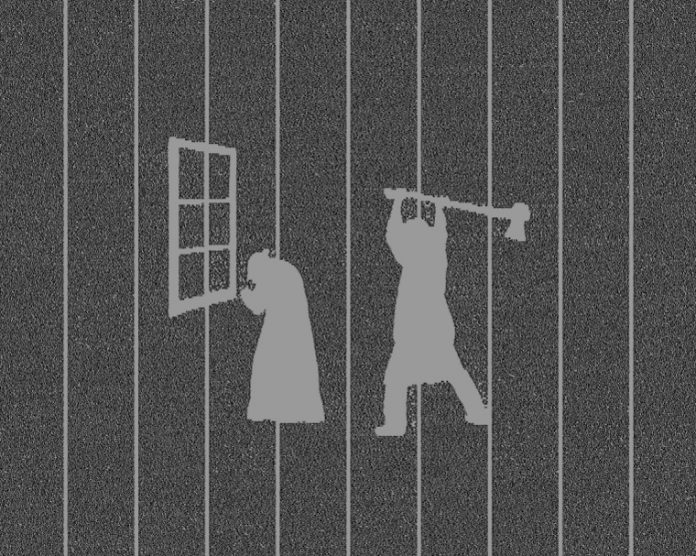A reader wrote to ask me (below) about my views regarding criminal prosecutions and the death penalty. I thought it worth answering in depth because of the importance of both questions.
So here goes.
Jury selection for the Brendt Christensen trial should be finishing soon. Christensen is charged with the disappearance of Yingying Zhang. The feds are seeking the death penalty. I was unaware that you wrote about trials until I read about the Anthony trial here. So I have a few questions on this one. In this case there is no dead body. Do you think the government should be allowed to kill people when they can’t even prove the existence of a victim? Internet search histories. Like the Anthony case, what the accused looked up will play an important role in this case. What do you think about the current trend of using what people say and read online to determine their suitability or culpability by government agents? Finally, do you think the clovers have evolved to the point where the accused will be found guilty simply because the government needs more power to keep us safe?
At one time, I supported the death penalty. At one time, I was also a more-or-less “small government” conservative with Libertarian leanings.
I have since recovered my senses.
First, I got to thinking about “the government.” What do we mean by this? It appears to mean a kind of entity, transcendent and superior. In fact, it is just a rhetorical device which drapes other people – the ones who hold offices, have titles and the legal power to apply murderous coercion – with those attributes, to make the use of murderous coercion seem legitimate in the manner of a god meting out justice.
But this “god” is extremely flawed – because we are flawed. No person acquires god-like powers of judgment, much less the right to impose them, by dint of acquiring a title or the wearing of a badge. But – a kind of psychosis – the title-holders and badge-wearers come to feel (and act) as if they were, in fact, god-like creatures – with the prerogatives that apply.
So, how to firewall that danger? That is the question. Well, one of them!
I reluctantly concede that some architecture for the resolution of civil and criminal issues may be inevitable in this far-from-perfect world. However, as a matter of logic, it is ridiculous to speak of “the government” (or even “the people”) as the victim/complainant in any civil or criminal proceeding since neither have any corporeal actuality and so cannot, in plain language, be harmed.
Only human individuals can be harmed – and this ought to serve as the foundational principle for every civil/criminal proceeding. If a victim cannot be produced – then harm cannot be established – and it would be absurd to speak of a crime having been committed and a moral obscenity to punish the “accused,” who would then become the victim of “the government” (or “the people”).
In a murder (or wrongful death) case it seems to me the first thing which must be established is that the alleged victim is, indeed, no longer living.
Absent a body (or major pieces of it, without which continued life would be in question) the evidentiary standard rises to the almost-insuperable. A very convincing video, of example, of someone being run through a wood chipper.
This of course opens the door to the meticulous killer – but few such actually exist and regardless, the principle applies: Better the occasional injustice (a meticulous killer “getting away with it”) than the regular application of injustice. It’s the same principle which raises its hand to object to taking the guns of people who haven’t shot anyone because someone else did – or might. And which casts a questioning eye on “checkpoints” that presume the guilt of all, who are then obliged to establish their innocence.
Establishing motive is secondary to the necessity of first establishing the fact that, indeed, someone has been killed.
That an accused killer researched X, Y or Z does not tell us he murdered anyone. It tells us he researched X, Y and Z – none of which are murderous acts though in context (of a body) may be suspicious act.
But suspicion by itself isn’t guilt – or shouldn’t be enough to establish it.
Someone seems swishy. Maybe he is a homosexual. It may be likely he is a homosexual. It may be entirely reasonable to suspect it, based on things inferred. But you do not know it unless he tells you he is – or you witness an indisputably homosexual act.
I think that standard – at the least – should apply to criminal cases.
Capital cases, certainly.
If “the government” is to be given (by whom? – another important matter for discussion) the power to execute people, it seems to me there must be more than the absence of “reasonable doubt,” given the stakes.
Unfortunately, there seems to be a general lust for punishing people who haven’t been proved guilty of anything.
Assertions of guilt now serve a- ipso facto – as “evidence” of guilt. The government would never accuse – much less prosecute – an innocent person. Ergo, if someone has been charged with a crime, he must be guilty of it – or of something.
We see this principle elaborated in the persecution of the Orange Man (and before him, of Martha Stewart). Both were – and the Orange Man still is – pursued not for the original charge alleged but alleged to have “obstructed” their own persecution.
So, yes – I am very uncomfortable with “the government” pursuing a capital murder case without having established that anyone has even been murdered – much less who performed the alleged act. And I am very leery of this business of daisy-chaining things read/researched online – thoughts, basically – with claimed actions.
I read morbid stories; Poe and Lovecraft. I have researched serial killers; read about (and watched) videos about death/embalming – and so on. Does this mean I plan to kill? That I have killed?
Not by any moral accounting.
I’ll end with a short story from the pages of history, which I think applies here. Some will already know it. There was a man named Thomas More, who was at one time the friend of King Henry VIII of England. Also his Lord Chancellor. The two men had a falling out over More’s imputed disapprobation of Henry’s divorce of his first wife – and marriage to Anne Boleyn, who would eventually lose her head (another story).
More lost his head, too.
But not because of anything he did – or even said. His silence condemned him. The lack of evidence, in other words, that he felt one way or the other about the king’s personal life.
And Henry was at least a flesh and blood man – not a hydra-headed entity, “the government.”
It was said Henry felt guilt over the execution of the man who had been his friend – and who had done him no wrong.
“The government” feels nothing. It is an impersonal machine that obviates even that human check on potential atrocity – which is precisely why it so very dangerous to allow it any power at all.
…
Got a question about cars – or anything else? Click on the “ask Eric” link and send ’em in!
If you like what you’ve found here please consider supporting EPautos.
We depend on you to keep the wheels turning!
Our donate button is here.
If you prefer not to use PayPal, our mailing address is:
EPautos
721 Hummingbird Lane SE
Copper Hill, VA 24079
PS: Get an EPautos magnet (pictured below) in return for a $20 or more one-time donation or a $10 or more monthly recurring donation. (Please be sure to tell us you want a sticker – and also, provide an address, so we know where to mail the thing!)
My latest eBook is also available for your favorite price – free! Click here. 













Notwithstanding the many great points you’ve made about the death penalty and why we ought to abolish it, Eric, I still believe that it has its place. It’s the ONLY fitting penalty, IMO, for ALL premeditated murder (not simply “cop killas”) as well as treason, in which case, we ought to put a guillotine on the steps of the US Capitol and line ’em up, how long can it take to behead 535 persons?
However, the present system is hopelessly broken, having turned into a legal boondoggle. The costs to put someone to death typically well exceed, with all the legal fees and court time involved. Typically the incarceration costs are much higher with death row inmates and as one would expected, there’s no nominal useful work that can be had out of them due to the inherent security risks. Finally, the very process of languishing for years while the appeals are exhaustively run through can be said to constitute a form of “cruel and unusual” punishment of itself. I believe that the average stay on death row, no pun intended, in California is now 27 years and it only gets worse. For example, the notorious wife and unborn-baby killer, Scott Peterson, is just NOW, FIFTEEN years after he was found guilty of their murders and sentenced to death, having his appeal go to the California Supreme Court, as all death penalty cases automatically do so under CA law. It may take FIVE years for the Court to either affirm the verdict and sentence or send back to the original court for re-trial. This once young fellow is now pushing 50 and his hair is shot with grey. In CA, a death row inmates is more likely to pass on due to natural causes.
There are significant legal reforms that need to be made to actually implement the death penalty; the most important being that the legal gravy train needs to be derailed and punishment be much swifter than it has been. In most cases, the execution should take place within TWO YEARS of pronouncement of sentence. Justice delayed in justice denied. However, under the category of “every thing I need to know in life, I learned from ‘Star Trek’, in this case the very pilot two-part episode, where Capt. Piccard is shown an Earth court set in the year 2079, supposedly in a post-Holocaust state, where the pedantic Starfleet officer describes its motto as “First, let’s kill ALL the lawyers!”, which “Q” affirms that Shakespeare’s quip has been literally applied. Hope springs eternal.
Eric,
I, too, was once in favor of The State killing the accused and also have come to my senses. However, that puts us firmly in the minority in the Christian Nation [so called] of the United States of America.
The “conservatives” that will loudly proclaim their desire for small and un-intrusive government and shout from the rooftops of GovCo’s ineptitude will just as fervently support GovCo’s killing of anyone that GovCo says deserves it. Liberals that proclaim their love for humanity, especially children, will then do everything they can to broaden the scope and nature of The State, an organization that is built on savage, brute, deadly force to achieve its aims.
Hypocrites ALL!!
The State should never have the power of Executioner.
Perhaps the current dilemma can be condensed into one example. When Donald “The Riddler” Rumsfeld was asked about the lack of hard proof that Saddam Hussein had nuclear, biological or chemical weapons at his disposal his response was, “The absence of evidence is not evidence of absence.”. He was praised across the nation for his sagacity. Sickening.
The good news is it will all implode under the weight of its own contradictions. (h/t Ayn Rand)
Hello Mark. I think capital punishment is wrong except under one condition: murder by a person who has no remorse for their crime – to wit, a psychopath.
We kill the wrong people and we let live the wrong people. A person who kills when s/he finds their spouse in bed with another person and feels remorse is legally sane and put to death. But, a person, such as a serial killer who feels no remorse is spared the death penalty because they have no mens rea.
When I was a young man, I watched an interview with a psychiatrist discussing the Boston Strangler who was incarcerated for killing thirteen people. The psychiatrist was asked, “Can he ever be released into the general public again?” The shrink responded that because the Strangler was a psychopath, if released, he will kill again.
My thought is if he will kill again then he is a clear and forever present danger. Why do we keep him alive? Why do we kill those who can be rehabilitated but keep alive those who can never ever rejoin society because they will kill again if released. Seems to me that we kill the wrong people and leave alive, at great expense, those who will always be a danger.
If my dog bites me, he shows remorse. I will scold him but, a wild bear in the woods that attacks me leaves me no choice but to kill the bear. Do I want to kill the bear? No, but if I don’t then the bear will kill me.
The Boston Strangler was “the bear”.
I believe that capital punishment is appropriate when our esteemed “public servants” violate an individual’s rights or violate their oath of office. Given the amount of damage the “authorities” are in a position to inflict they need to be held to the highest possible standard.
Well-said, Larry.
There are mitigating circumstances in many crimes. But when a psychopath kills for the enjoyment of it, we are dealing with the two-legged equivalent of a rabid raccoon. Worse, really, because the coon can’t help it; he has lost his mind.